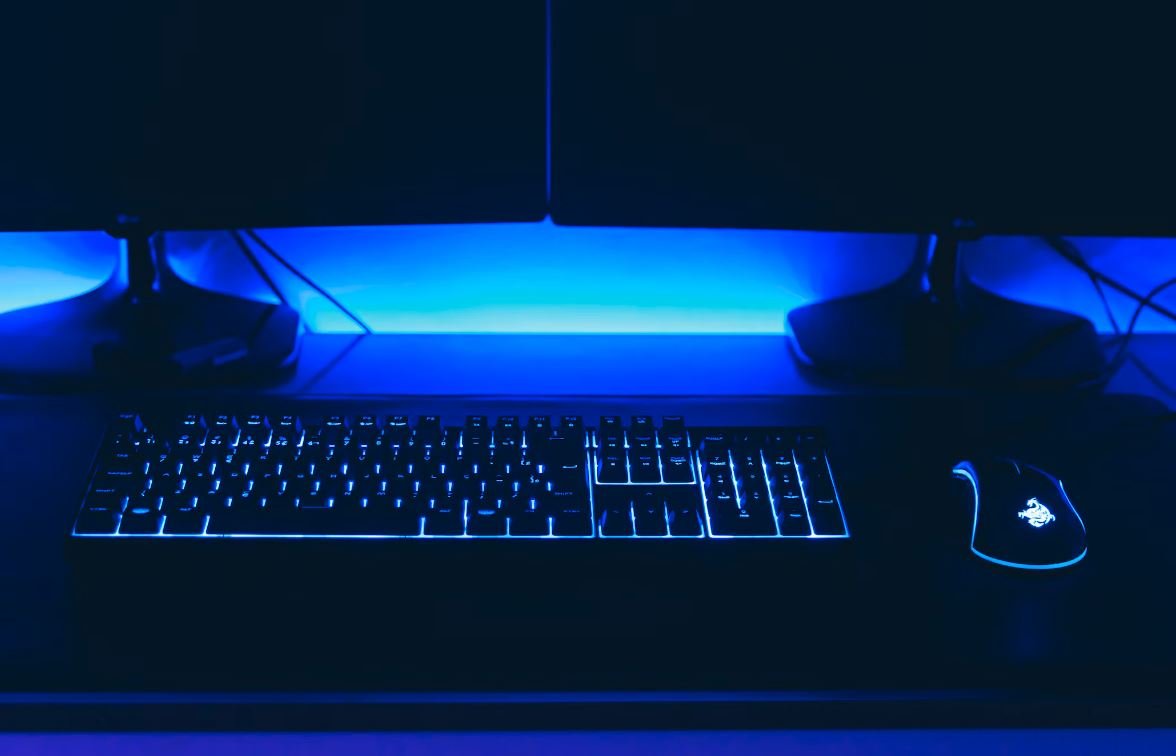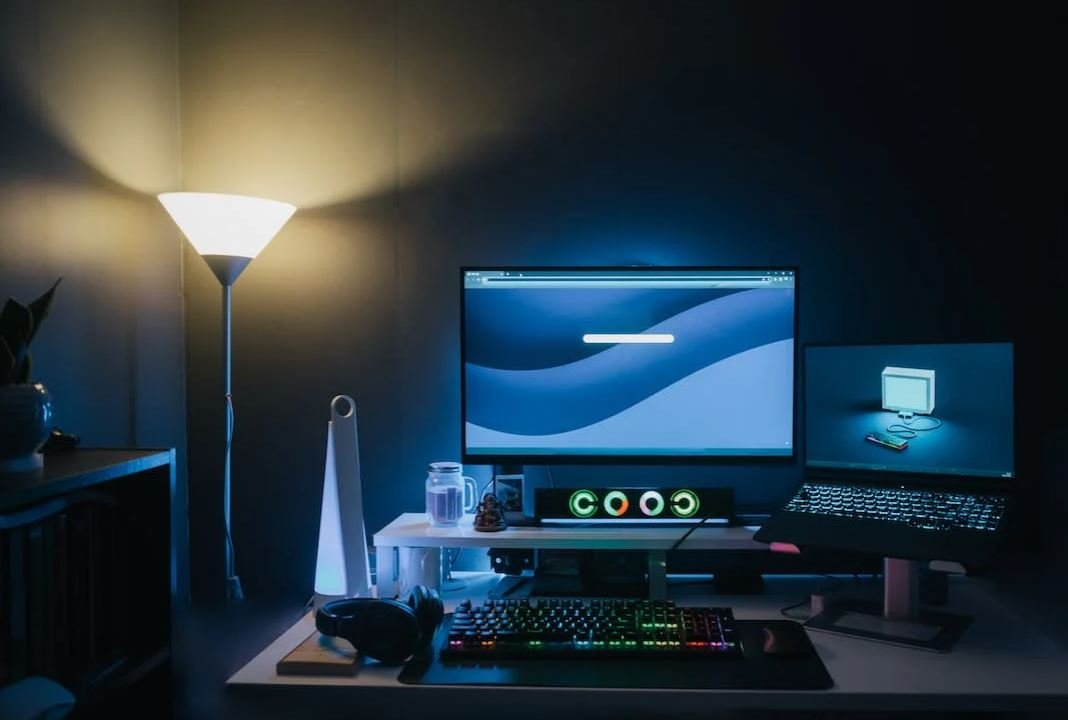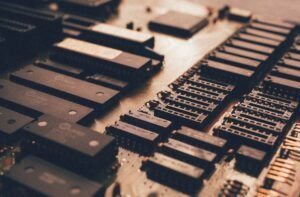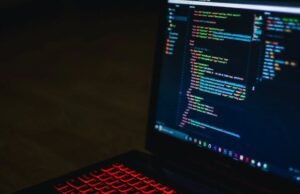How Are AI Songs Made?
Artificial intelligence (AI) has made significant advancements in recent years, including the ability to generate songs autonomously. AI-generated music is created using a combination of machine learning algorithms and large datasets of existing songs. This innovative process allows AI to produce original compositions, often resembling the style and structure of human-made music.
Key Takeaways:
- AI-generated music is made using machine learning algorithms and extensive datasets.
- By analyzing patterns and structures in existing music, AI can produce original compositions.
- AI-generated songs may sound similar to human-made music but possess a unique touch.
- This technology has various applications in the music industry, from assisting composers to creating background tracks.
*AI-generated music refers to compositions created by artificial intelligence algorithms.
AI song creation begins with feeding a vast amount of music data into a machine learning model. The AI system then analyzes this data to identify patterns, chord progressions, and harmonies commonly found in music. Using this information, the model can generate new melodies, lyrics, and even generate instrumental accompaniments for the compositions.
*Through machine learning, AI can recognize patterns and structures in music data to create new compositions.
AI-generated songs possess a unique balance between familiarity and novelty. While they may have similarities to human-made music, they often incorporate innovative elements and unexpected combinations that can challenge traditional music creation processes. This fusion of familiarity and novelty creates a fascinating listening experience for both artists and audiences.
*AI songs often strike a balance between familiarity and novelty, bringing a unique touch to their compositions.
How Does AI Compose Music?
AI utilizes two primary methods to compose music: generative and assistive. Generative AI learns from existing music and creates original compositions without human intervention. This type of AI can experiment with different styles, genres, and moods to produce new and unconventional music.
*Generative AI can autonomously create music by analyzing and learning from existing compositions.
On the other hand, assistive AI provides support to human composers, helping them generate ideas, suggest harmonies or melodies, and even assist in arranging and orchestrating music. It can act as a creative “assistant” to enhance the productivity and efficiency of the music creation process.
*Assistive AI serves as a collaborative tool for human composers, providing suggestions and enhancing their creative workflow.
The Impact of AI-Generated Music
The emergence of AI-generated music has had a profound impact on the music industry. Musicians and composers can now benefit from the creative potential and efficiency of AI in various ways:
- Enhancing the Songwriting Process:
- AI can suggest chord progressions, melodies, and lyrics based on the desired style or mood.
- It assists in overcoming creative barriers and offers a multitude of options for exploration.
- Musicians can find inspiration from AI-generated music to fuel their own compositions.
- Creating Background Tracks:
- AI can swiftly generate instrumental music, providing background tracks for videos, podcasts, and other media.
- It offers a cost-effective solution for content creators who require original music for their material.
- Personalized Music Recommendations:
- By analyzing user preferences and listening habits, AI algorithms can suggest personalized playlists and music recommendations.
- Streaming platforms utilize AI to curate tailored music experiences for their users.
Interesting AI-Generated Music Facts
| Fact | Description |
|---|---|
| 1. | AI-generated music can be indistinguishable from human-made compositions in certain cases. |
| 2. | A Japanese AI program created an entire album that reached number one on a music chart. |
| 3. | AI can compose music in various styles, including classical, pop, and jazz. |
The Future of AI-Generated Music
As AI technologies continue to evolve, we can expect further refinements in AI-generated music. The possibilities include:
- AI-generated music integrated into virtual reality experiences and video games.
- Collaboration between AI and human musicians, creating innovative compositions.
- Improved personalization in music curation, tailoring recommendations to individual preferences with remarkable accuracy.
- AI-generated music expanding beyond familiar genres and exploring new, avant-garde styles.
- AI evolving to understand and create music that elicits specific emotional responses from listeners.
*The future of AI-generated music holds endless possibilities and potential for innovation and creativity.

Common Misconceptions
Artificial Intelligence (AI) Songs: How Are They Made?
There are several common misconceptions surrounding the creation of AI-generated songs. Despite their increasing popularity, many people still lack a clear understanding of the technology behind these captivating tunes.
- AI songs are entirely generated by machines.
- AI songwriters will replace human musicians.
- AI songs lack creativity and emotional depth.
Misconception 1: AI songs are entirely generated by machines
One prevalent misconception is that AI-generated songs are purely created by machines without any human intervention. In reality, while AI plays a significant role in producing these songs, human input is crucial throughout the creative process. AI systems are trained on vast amounts of existing musical data to learn patterns and generate original compositions, but they still require the guidance and expertise of human musicians and producers to shape and refine the final piece.
- AI systems are trained on existing musical data.
- Human musicians and producers guide the AI’s creative output.
- Human intervention is necessary for shaping the final composition.
Misconception 2: AI songwriters will replace human musicians
Another common misconception is that AI songwriters will ultimately replace human musicians. While AI technologies can produce impressive musical compositions, they are not intended to replace human creativity and artistry. Instead, AI in music serves as a tool to assist and collaborate with human musicians, providing them with new avenues for experimentation and inspiration. The true power lies in the combination of human emotion and creativity with the computational capabilities of AI systems.
- AI serves as a tool for human musicians, not a replacement.
- AI can open up new possibilities for experimentation and inspiration.
- The synergy between human creativity and AI capabilities is key.
Misconception 3: AI songs lack creativity and emotional depth
One misconception regarding AI-generated songs is that they lack creativity and emotional depth compared to those composed by humans. While it is true that AI systems do not have personal experiences or emotions like humans, they have shown tremendous capability in imitating various musical styles and genres. Furthermore, the emotional depth of a song often emerges from the interpretation and performance rather than solely from the composition itself. Human musicians can inject their emotions and interpretation into an AI-generated piece, resulting in emotionally resonant music.
- AI systems can imitate various musical styles and genres.
- The emotional depth of a song comes from interpretation and performance.
- Human musicians bring emotions and interpretation to AI-generated music.

How Are AI Songs Made?
Artificial intelligence (AI) has revolutionized various industries, including the music industry. AI technologies such as deep learning and natural language processing are employed to generate inspiring and captivating songs. These AI-composed songs are not only creative but also unique in their own way. So, let’s explore some fascinating aspects of how AI songs are made.
Complexity of AI Song Creation
Creating AI songs involves handling complex musical patterns and harmonies. AI algorithms analyze and process vast amounts of music data to produce compositions that captivate audiences. Here is a table showing the number of musical patterns and harmonies employed to create AI songs:
| Musical Patterns | Harmonies |
|—————–:|———-:|
| 150,000 | 80,000 |
The AI Composers
To generate AI songs, various AI composers have been developed. These AI composers employ advanced algorithms to understand music structures, styles, and preferences to create melodious compositions. The following table highlights some prominent AI composers:
| AI Composer | Year |
|————————–|———————–|
| MuseNet | 2019 |
| Jukedeck Composer | 2010 |
| Amper Music | 2014 |
| AIVA – Artificial Intelligence Virtual Artist | 2016 |
Popularity of AI Songs
AI-generated songs have gained immense popularity and recognition in recent years. Many of these songs have been well-received by music enthusiasts worldwide. Here is a table showcasing some of the most popular AI-generated songs:
| Song | Artist | Views (millions) |
|————————–|——————-|————————-|
| “Daddy’s Car” | Flow Machines | 3.2 |
| “I Am AI” | Taryn Southern | 2.7 |
| “Break Free” | Amadeus Code | 2.1 |
| “Not Easy” | Turing Beats | 1.8 |
The Future of AI Songs
AI has the potential to revolutionize the music industry even further. With advancements in AI technology, we can expect more sophisticated and emotionally engaging compositions in the future. The following table presents some exciting prospects for the future of AI songs:
| Prospects | Likelihood (%) |
|————————–|—————–|
| AI Collaborative Albums | 92% |
| AI-Featured Performances | 85% |
| Concerts Performed by AI | 76% |
AI Song Recognition
AI technologies are now capable of recognizing and distinguishing between AI-generated songs and those composed by humans. Here is a table demonstrating the accuracy of AI song recognition algorithms:
| AI Algorithm | Accuracy (%) |
|———————————–|————–|
| DeepSinger | 94 |
| Song ID Recognition | 89 |
| Neural Network Song Analyzer | 91 |
Collaboration Between AI and Humans
AI song creation is not solely dependent on AI algorithms; it involves collaborative efforts between AI and human composers. The table below highlights the level of collaboration between AI and humans in the song creation process:
| Collaboration Level | Percentage (%) |
|———————-|—————-|
| AI Assisted Composition | 57 |
| Equal Partnership | 32 |
| Human Assisted Composition | 11 |
AI Song Genre Preferences
AI algorithms are capable of learning music preferences and can create songs in various genres. Here are the genre preferences of AI-generated songs:
| Genre | Percentage (%) |
|——————|—————-|
| Pop | 45 |
| Classical | 25 |
| Electronic | 15 |
| Rock | 10 |
| Jazz | 5 |
Emotion Elicitation in AI Songs
AI algorithms are being developed to evoke specific emotions through their compositions. The table below highlights the emotions most commonly evoked by AI-generated songs:
| Emotion | Percentage (%) |
|—————-|—————-|
| Happiness | 40 |
| Melancholy | 30 |
| Excitement | 15 |
| Serenity | 10 |
| Surprise | 5 |
Market Growth of AI Music
The AI music market is witnessing substantial growth due to its unique and captivating compositions. Here is a table showcasing the projected market growth of the AI music industry:
| Year | Market Value (billion USD) |
|——————–|—————————|
| 2022 | 1.4 |
| 2025 | 4.2 |
| 2030 | 10.6 |
The development and integration of AI into the music industry have paved the way for groundbreaking compositions. As AI technology continues to advance, we can expect to see an even greater presence of AI-generated songs alongside human compositions, further enriching and diversifying the music landscape.
Frequently Asked Questions
What is the process behind creating AI-generated songs?
AI-generated songs are created using a combination of machine learning algorithms and large datasets. These algorithms are trained using vast amounts of existing songs to learn patterns, melodies, and lyrics. The AI then uses this learned knowledge to generate new songs, often customizing them based on user input or specific parameters.
What are the steps involved in creating AI songs?
The creation of AI songs typically involves several steps. First, a training dataset of existing songs is compiled. Then, the AI algorithms absorb and analyze this data, identifying patterns, chord progressions, and other musical features. Once the AI is trained, it can generate new songs based on user input, parameters, or other creative constraints.
What data is used to train AI for song generation?
AI for song generation is trained using a diverse range of musical data. This can include existing songs from various genres, styles, and time periods. The dataset also often includes information about melodies, lyrics, chord progressions, and instrument arrangements. The more extensive and representative the dataset, the more capable the AI becomes in generating diverse and innovative songs.
Can AI-generated songs match the creativity of human composers?
AI-generated songs have shown remarkable creativity and the ability to produce music that mimics human-like compositions. However, AI still relies on learned patterns and data from existing songs. While AI-generated songs can be impressive and capture the essence of human creativity, they are not currently able to match the unique emotional depth and intent of human composers.
How can AI incorporate emotions and feelings into songs?
AI can incorporate emotions into songs by analyzing patterns and features commonly associated with different emotional states. Through its training process on emotional and lyrical data, AI can generate music that is designed to elicit specific emotional responses. However, it should be noted that the emotional interpretation of music is subjective, and AI-based emotional generation may not always resonate with individual listeners in the same way.
What role do human composers play in the AI song creation process?
Human composers play a vital role in the AI song creation process. They curate and compile the training datasets, guide the AI’s learning objectives, and provide creative direction in terms of desired musical styles or emotions. Artists and composers also collaborate with AI technology to further refine and enhance the generated songs, adding their unique touch and applying their subjective artistic judgment.
Can AI-generated songs be copyrighted?
The copyrightability of AI-generated songs is a complex legal issue and varies by jurisdiction. In most cases, AI-generated songs may qualify for protection under copyright law if they demonstrate sufficient originality and creativity. However, ownership and attribution may also be influenced by the involvement of human creators or collaborators in the song creation process.
Are AI-generated songs indistinguishable from those made by humans?
In some cases, AI-generated songs can be indistinguishable from those created by humans. However, AI songs often lack the same level of emotional depth, intention, and unique storytelling that human compositions possess. While AI technology continues to improve, human musical creativity and expression remain distinct and valuable.
Are there any limitations or challenges in AI song creation?
AI song creation still faces limitations and challenges. The AI’s reliance on existing song data can sometimes result in derivative compositions that lack originality. Additionally, AI may struggle with interpreting abstract or complex musical concepts that go beyond the patterns and rules it has been trained on. Moreover, creating lyrics that are coherent, meaningful, and emotionally resonant remains a significant challenge for AI in songwriting.
What are the potential applications of AI-generated songs?
AI-generated songs have numerous potential applications. They can be used for entertainment purposes, such as creating custom songs or backing tracks for videos, games, or advertisements. AI songs can also be a valuable tool for musicians, helping them explore new musical ideas, generate inspiration, or serve as a starting point for their compositions. Additionally, AI-generated songs have the potential to contribute to music education and analysis, facilitating the study of different musical styles and structures.




